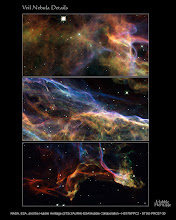I'm looking forward to watching Totoro in this developmental framework, because I think the film is deeply psychological. Perhaps the Totoro is in fact a representation of their mother. The girls are learning about symbolic play and experiential play. I could even define Piaget's theories in terms of miyazaki's characters.
Tuesday, February 23, 2010
Integration of Developmental Psychology
I'm taking this really wonderful developmental psychology class and thinking about children all the time has informed my watching of Miyazaki films. It makes me wonder why he uses young women as his hero's; why not use post-pubescent girls? What is the allure of these characters and how does developmental psychology influence Miyazaki's work?
Wednesday, February 17, 2010
The Women of the Wind

The first thing I noticed tonight when I watched Castle in the Sky was the beautiful motif of a woman drawn in the opening credits blowing the clouds. I guess it set the tone for the rest of the film and made me really wonder about the similarities and differences between the two main characters. I tried to find a screen shot of the woman but I couldn't find one.
I guess what I find most interesting is that I identify with both Dola and Sheeta. Life isn't always pretty and we can't all stay little girls forever. There is something beautiful about the kind of complicated adult life that Dola leads. While Sheeta is naive she is also beautiful, graceful and courageous.
I think this film says something beautiful about the influence of women on a society. I'm not entirely sure what it says yet. Anything I write now will seem pretentious and obnoxious, so, I'm going to mull it over for a couple days. If you're lucky maybe I'll figure it out and remember to blog about it.
Thursday, February 11, 2010
Overheard 7pm 2/10- 2nd Screening of Nausicaa

Before the screening, I overheard a conversation. It went something like this,
"I don't want to analyze my favorite film, that will ruin it"
"No, It won't ruin it, it makes it better"
"No way, being that analytical ruins the film"
I simultaneously understand both perspectives. I know what's it's like to have a film deeply associated with all sorts of personal memories. To have someone go through it seems like pillaging all of your personal meaning out of the film. What if it brings up things that you don't agree with or dislike about the film. The analysis can seem trite and unimportant; or maybe it just seems like she is ruining something that you thought was perfect and that you loved.
The counterpoint would be that if you really love a film that much then you should want to understand all of it. Even the parts that challenge you or that you don't like. I think it's Freudian ideal that explains that one dislikes things that remind you of something you don't like about yourself.
My favorite part of Nausicaa upon the second screening is the first time that you hear the Ohmu touch Nausicaa with their tentacles and start singing. I love the connection between the Ohmu and children. It is this beautiful paradox of something so large and apparently evil actually being innocent and childlike. The Ohmu are both creators and destroyers.
Ps. I think the Matrix stole the design for the machines from Nausicaa's Ohmu.
Wednesday, February 3, 2010
harmful v. harmless
Tonight I watched Miyazaki's Nausicaa for the very first time. I was impressed; although I wasn't expecting the messages that I recieved. Before this class I had only seen My Neighbor Totoro. I was young when I saw it for the first time and some of the intellectual messages must have passed over my unsuspecting head. Many had talked about Miyazaki's environmental messages and I wasn't really aware of how those would manifest in such "cute" movies.
I think my favorite scene from this movie was when Princess Nausicaa finds the Omu shell in the forest. She says something like, how can things this beautiful be harmful. That moment foreshadowed one plot points in the movie. That actually, the forest was not harmful and instead only protecting itself. I think Nuassicaa really grapples with the themes of protection, isolation, and how to react to destruction. I was awed at the detail of the animation and have come home to my roommate and reccomended she watch it.
I wonder how men react to the movie.I always assumed that a strong lead female, like Naussicaa, would alienate a male audience. Although, I guess the sci-fi type genre might alienate part of the female audience.
Subscribe to:
Posts (Atom)
